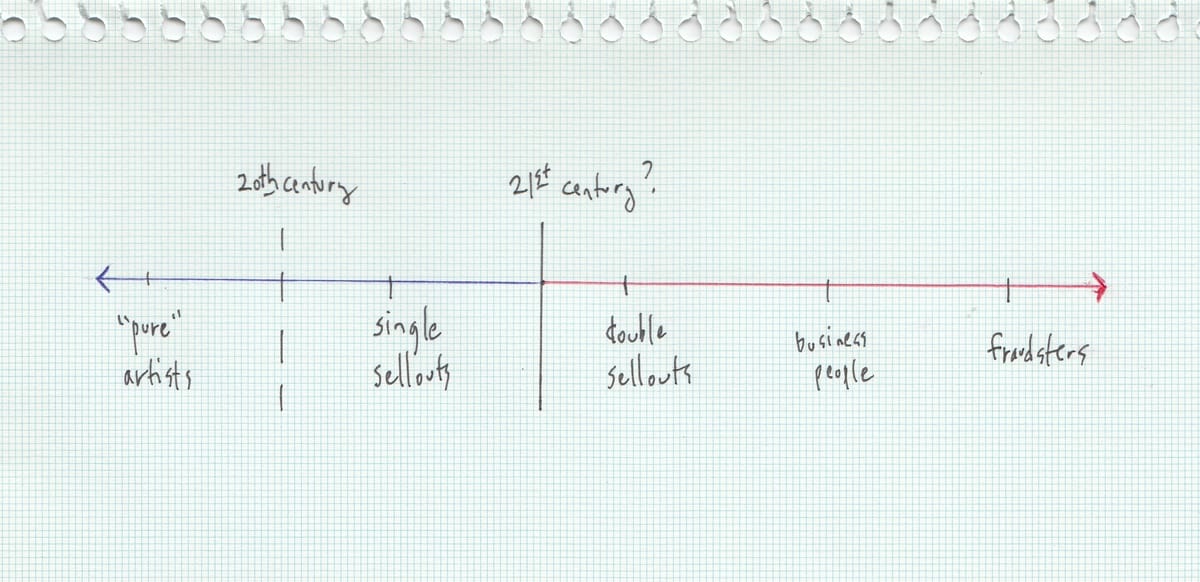
"'In the 1990s, there was a single ethical principle at the heart of youth culture - don't sell out. This ethic shaped alternative culture and its perception.'"
"'By the late 1990s, with the merger of alternative and mainstream culture, the debate around selling out seemed very silly, leading to a cultural shift.'"
Over the last thirty years, youth culture transitioned from rejecting commercialism to accepting and even promoting it. Initially, the ethos of the 1990s revolved around the concept of âselling out,â where artists were warned against compromising their vision to fit mainstream tastes. As alternative music gained popularity, concerns over commercial exploitation took center stage. By the late 1990s, however, the blurring lines between alternative and mainstream rendered the notion of âselling outâ outdated, allowing a generation to embrace commercial success without guilt, culminating in a richer, more diverse cultural landscape.
Read at Culture: An Owner's Manual
Unable to calculate read time
Collection
[
|
...
]